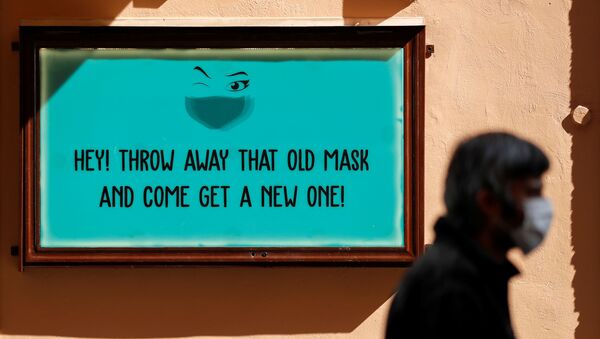The UK’s unemployment rate grew to 4.5 percent in the three months to August, amid fears that new local lockdown measures imposed by the government in an attempt to contain a second COVID-19 wave will translate into more people being made redundant, official figures showed on Tuesday.
“Estimates for June to August 2020 show an estimated 1.52 million people were unemployed, 209,000 more than a year earlier and 138,000 more than the previous quarter,” the Office for National Statistics (ONS) said in a report.
According to the ONS, the 4.5 percent increase is 0.6 percentage points higher than a year earlier and 0.4 percentage points higher than in the three months to June.
It added that the number of payroll employees has fallen by 673,000 since the COVID-19 pandemic began in the UK in March.
Nearly 10 million people benefited from the Coronavirus Job Retention Scheme the government implemented in March to avoid massive layoffs and which saw the government covering up to 70 percent of the salaries of workers so they can keep their jobs amid the national lockdown.
The scheme is due to expire on October 31, and the UK Finance Minister, Rishi Sunak, told Parliament on September 24 that he “cannot save every job” when he unveiled the government's economy plan for winter.
The new furlough scheme to be implemented from November 1 will run for six months and will see the government paying only for 22 percent of the hours not worked by employees who are told to self-isolate because of the novel coronavirus.
On Monday, Prime Minister Boris Johnson said the UK is entering a crucial phase as he announced a new three-tier COVID-19 alert system aimed at tackling the second wave of the pandemic that is raging across England.
As part of the new alert system, most of England will be in the “medium” level from Wednesday, meaning existing social distancing measures such as the Rule of Six, a ban on indoor or outdoor meetings of more than six people, and the closure of hospitality venues at 10:00pm (21:00 GMT), will apply.
“High” adds extra measures including a ban on indoor social mixing between households or support bubbles, while the “Very High” level will be for places where a rapid increase in the rate of infections could put the public health service under intolerable pressure.
The highest-risk category will be enforced from Wednesday in the Liverpool City region, and includes a ban on all social mixing between people from different household in private and public places, and the closure of leisure centers, gyms and betting shops.
Pubs and bars will also have to close, unless they can operate solely as restaurants, serving alcohol as part of a main meal, Johnson said.








